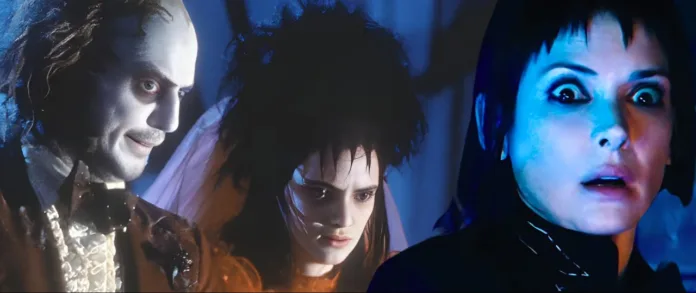The actress reveals how her role in the 1988 cult classic made her school life more challenging, rather than boosting her popularity
Winona Ryder recently opened up about the surprising impact that starring in the iconic 1988 film Beetlejuice had on her high school experience. In an interview with Esquire UK, published on August 29, Ryder shared how her portrayal of Lydia Deetz—a dark and eccentric teenager—led to increased bullying and isolation, contrary to her expectations of newfound popularity.
At just 16 years old when Beetlejuice was released, Ryder believed that her role in the movie would elevate her status among her peers. However, the reality was far different. “I remember thinking that it was going to, like, change my status, and it made it worse,” Ryder confessed. Instead of admiration, she faced mockery and disdain from her classmates. The harsh reaction included being labelled a “witch” and a “freak,” intensifying the bullying she already experienced.
Ryder’s recollections reveal the stark contrast between the glamour of Hollywood and the harshness of adolescence. Despite her success on the big screen, she found herself further ostracized at school. “It amplified it,” she said, recalling her disappointment when her peers didn’t appreciate the significance of her achievement. “I was like, ‘But I’m in a movie!'”
Ryder also noted how closely she resembled her character Lydia at that time in her life. She described herself as naturally aligned with the gothic and unconventional style that Lydia embodied. “They didn’t have to do much with me,” she explained, sharing how her appearance at the time—a blue-black dyed hairstyle, short bangs, and an all-black wardrobe—mirrored Lydia’s look almost perfectly. This connection to her character only deepened the alienation she felt at school, as her peers struggled to accept her differences.
The interview highlights how Ryder’s early experiences with fame were far from glamorous, revealing the emotional toll that the clash between her rising stardom and her school life took on her. The actress’s candid reflections provide insight into the challenges faced by young stars, especially when their on-screen personas starkly contrast with the expectations and norms of their off-screen environments.
Analysis:
Political: Ryder’s experience touches on the broader political discourse surrounding the treatment of young actors within the entertainment industry. Her story underscores the need for stronger protections and support systems for child and teen actors, who often face unique challenges both on and off the set. Politically, this also raises questions about the role of schools and communities in safeguarding the well-being of young individuals who find themselves thrust into the public eye. Ryder’s account could spark discussions about implementing policies that better protect the mental and emotional health of young actors, ensuring that they are supported as they navigate the complexities of early fame.
Social: Socially, Ryder’s story resonates with the ongoing dialogue about bullying and the social dynamics of high school life. Despite her success in Hollywood, Ryder’s experience reveals how difficult it can be for individuals who do not conform to conventional norms, whether through their personal style or unique achievements. Her account highlights how societal pressures can exacerbate feelings of isolation and exclusion, even in the face of accomplishments that might otherwise be celebrated. This speaks to the broader issue of how society views and treats those who are different, particularly during the formative years of adolescence.
Racial: While Ryder’s story does not directly address racial issues, it does touch on the broader theme of being an outsider. Her experience can be viewed as a reflection of the challenges faced by those who do not fit into the dominant culture or social expectations, a struggle that is often magnified for individuals from marginalized racial or ethnic backgrounds. The parallels between Ryder’s treatment and the experiences of those who face discrimination based on race can lead to a deeper understanding of the universal struggles of belonging and acceptance.
Gender: Ryder’s reflections also bring attention to the gendered aspects of her experience. As a young woman in Hollywood, her appearance and choices were subject to intense scrutiny, both in the public eye and in her personal life. The bullying she faced in school could be seen as a reflection of the gendered expectations placed on young women to conform to certain standards of beauty and behaviour. Her resistance to these norms—through her role in Beetlejuice and her personal style—challenged the status quo, but also made her a target for criticism and exclusion. This aspect of her story aligns with broader discussions about the pressures women face to fit societal expectations, and the consequences of stepping outside those boundaries.
Economical: Economically, Ryder’s experience sheds light on the financial pressures and realities of early stardom. While her role in Beetlejuice may have brought her financial success, it also came with significant personal costs. This duality highlights the complex nature of fame, particularly for young actors who must navigate the challenges of wealth and visibility at a time when they are still developing their sense of identity. Ryder’s story serves as a reminder that financial success does not shield individuals from the emotional and social difficulties that can accompany it, especially in environments like high school where differences are often met with resistance rather than acceptance.
